Premium Only Content
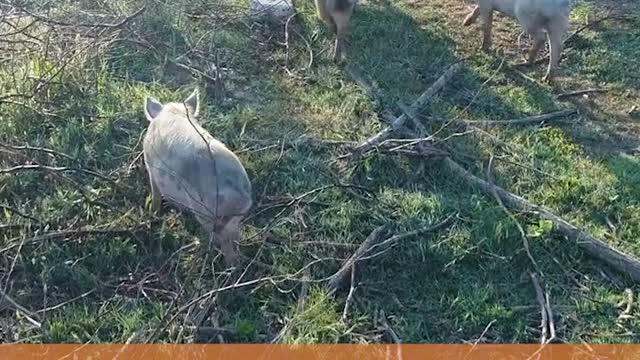
Texas Is Still Losing The War On Feral Hogs
Despite years of intense hunting and trapping, Texas is losing the war on feral hogs.
Since Texas Parks and Wildlife first began removing wild boars in 1982, the hog population in the Lone Star State has dramatically increased and there are now more than 10 times as many hogs in the state as there were then.
Unfortunately, the evidence is clear: Texans are losing the war on feral hogs.
Texas has very permissive regulations regarding hog hunting, and hunters may pursue hogs all year long with no bag limit. You can hunt them over bait, trap them, hunt them at night and from aircraft. As a result, it is estimated that over three quarters of a million hogs are taken by recreational, commercial, and government hunters and trappers each year in Texas.
Unfortunately, though, it isn't enough.
Hunting for Hogs in Texas
Even though hunters and trappers are killing approximately 30 percent of the hog population in Texas annually, hog numbers are still growing by about 20 percent each year. Biologists and wildlife managers estimate that 70 percent of the hogs in the state will have to be killed each year just to maintain the population and even more must be killed to actually start reducing their numbers.
Yes, you read that right: 7 out of every 10 hogs in the state must be killed just to keep their numbers where they are now.
So why are wild hog populations experiencing such explosive growth in this portion of the United States?
The main reason is that hogs breed almost as quickly as rabbits. They become sexually mature before they are a year old and can produce as many as 2-3 litters of up to 6-8 piglets every year.
Another reason they are difficult to control is because feral pigs are very intelligent and resilient animals.
They quickly respond to hunting and trapping pressure by changing their habits or just leaving the area for greener pastures when things get too hot. Since they are known to roam over extremely long distances in search of food, this makes long term hog control measures difficult and complicated.
[embed_recommendations]
Landowners and biologists have been relatively successful in controlling feral hog populations in small areas. However, these are usually short-term successes that only last until a new hog sounder moves in and the cycle starts over again.
While wild hogs are fun to hunt and provide some very tasty table fare, they also cause all sorts of problems. Their diet normally consists of things like roots, acorns, tubers and other plants, they will eat literally anything they can find or catch. Crops, snakes, insects, ground-nesting birds and even deer fawns aren't safe from a hungry hog.
Wild pigs are a textbook example of an invasive species and are causing significant damage to native wildlife and ecosystems in Texas. In addition to competing directly with deer for food, they damage vegetation that quail and turkey need to thrive. They also are carriers of a number of nasty diseases and there have even been cases of drinking water sources being contaminated by droppings from feral hogs.
So, what can be done about the hog problem in Texas?
Trapping Feral Hogs
The good news is that for all their strengths, hogs aren't invincible. Indeed, just about any rifle capable of taking a whitetail deer will probably also work very well as a hog hunting gun. While they are indeed very intelligent, they aren't geniuses, either, and trapping is a viable option for hog control virtually wherever they live.
Unfortunately, hog hunting and trapping are already going nearly full bore in Texas. Right now, these operations are taking less than half the number of hogs necessary to stop their explosive population growth and it's doubtful this can be achieved by those with trapping and hunting alone.
Poison has been touted as one potential way to turn things around in the American war on feral hogs. However, the use of a feral hog poison on a large scale is a very hotly contested idea.
Among other issues, researchers have really struggled to find a poison that'll quickly and reliably kill hogs without harming other wildlife. For instance, proponents of hog poison experienced a big setback when nearly 200 birds died after consuming sodium nitrite poison intended for hogs during field testing in northern Texas.
The Texas state government has enacted several measures in recent years to encourage feral swine removal like legalizing hunting hogs from aircraft and hot air balloons. In 2019, Texas Governor Greg Abbot even signed a bill into law that removes the requirement to possess a valid hunting license to take feral hogs on private land in Texas.
When added on top of the already very permissive regulations for hunting feral swine in Texas, those measures certainly help to a certain degree, but they probably won't be enough on their own.
Only time will tell what the future holds, though.
Like what you see? You can read more great articles by John McAdams on the Big Game Hunting Blog. Follow him on Facebook & YouTube and subscribe to his show: the Big Game Hunting Podcast.
Visit us at WideOpenSpaces.com
-
 1:15
1:15
WideOpenSpaces
3 years agoThe Fascinating Story of the Pope and Young Club
2.59K1 -
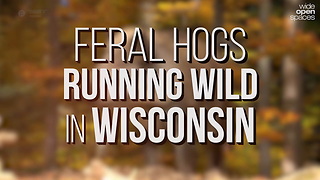 1:06
1:06
WideOpenSpaces
6 years agoFeral Hogs in Wisconsin
732K2 -
 11:06
11:06
Hollyscoop_
5 years agoJustin Bieber STILL Struggling Over Losing Selena Gomez! Kylie Jenner REFUSING To Marry Travis | DR
194 -
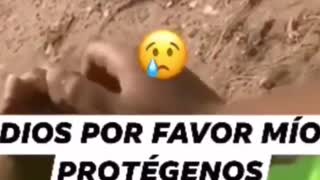 0:15
0:15
charlievision11
5 years agoTexas shooting
139 -
 0:43
0:43
KJRH
5 years agoTexas bridge protesters
128 -
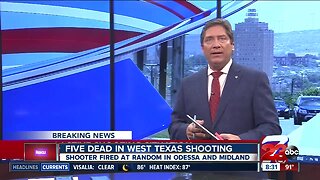 1:52
1:52
KERO
5 years agoWest Texas shooting
4.13K -
 5:58
5:58
KTNV
5 years agoMisinformation On Losing Weight
57 -
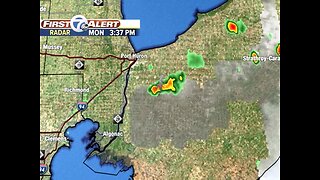 1:07
1:07
WXYZ
5 years agoStill warm
58 -
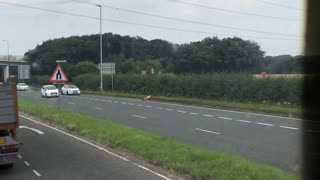 0:08
0:08
ViralHog
5 years ago $1.10 earnedLosing the Cops
8.89K -
 1:01
1:01
Vonvon_Smalljoys
5 years agoTexas Mom Slips Into Coma Before Giving Birth, Still In Coma After Son's Birth
209